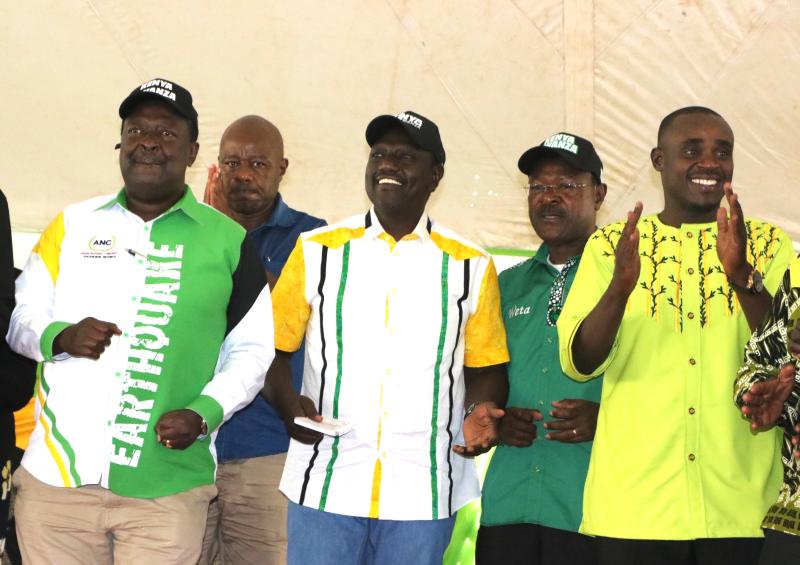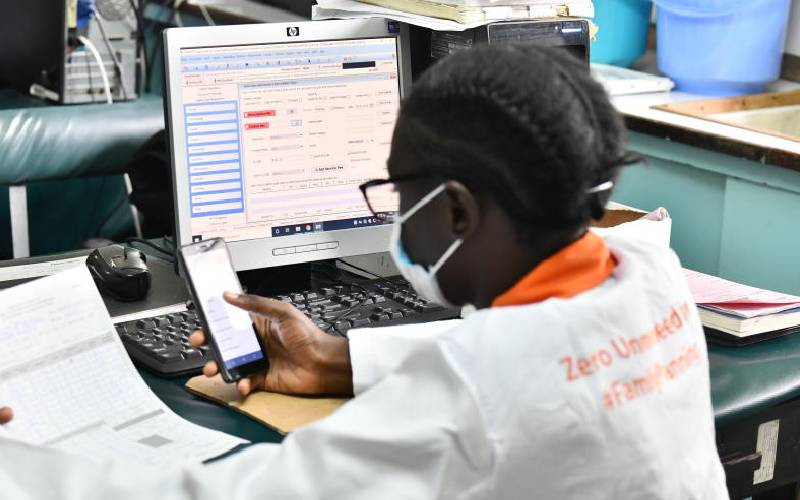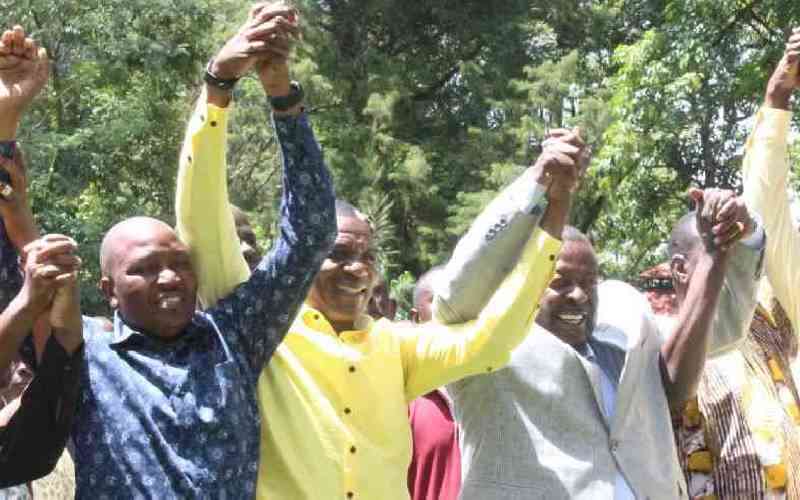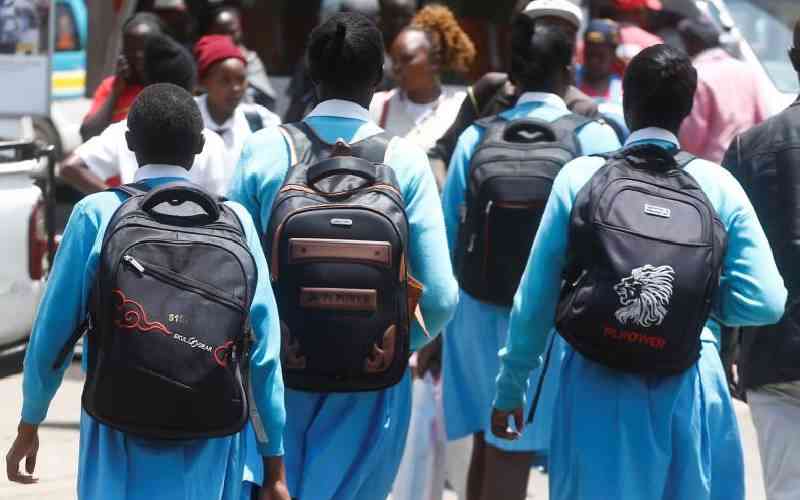Kenya Kwanza team from left: ANC Party leader Musalia Mudavadi, Deputy President William Ruto, Ford Kenya party leader Moses Wetangula and Kakamega Senator Cleophas Malala, during economic forum meeting held at Musingu Boys High School on April 22, 2022. [Benjamin Sakwa, Standard]
×
The Standard e-Paper
Fearless, Trusted News







